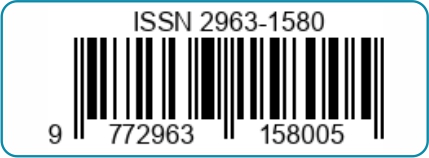Pemboikotan Produk Pendukung Kejahatan Perspektif Maqāṣid al-Syarī’ah
Boycotting Products Supporting Crimes from the Perspective of Maqāṣid al-Syarī'ah
DOI:
https://doi.org/10.36701/fikrah.v1i1.1702Keywords:
boycott, product, crime, maqāṣid al-syarī'ahAbstract
Globalization is growing rapidly, the ease of access and mobility of products and resources brings many benefits, but at the same time creates new, very complex problems. One of the more significant global problems is the spread of crime. Boycotting is a concrete action taken by the community to stop a crime, but on the other hand it invites a dilemma because by boycotting a mafsadat can also be caused. This study aims to find out the concept of boycotting products that support crime and analyze boycotts from the perspective of maqāṣid al-syarī'ah. The type of research used in this study is library research, using qualitative research methods described descriptively with normative and sociological approaches. The results of this study are as follows: First, boycotting crime-supporting products is a non-violent action aimed at exerting economic and moral pressure on entities deemed to be involved in criminal acts. This concept involves a systematic rejection of products that are considered to contribute to a crime, in conducting boycotts there needs to be a systematic strategy so that boycotts can run effectively. Second, from the perspective of maqāṣid al-syarī'ah, boycotting products that support crime can be done after considering the benefits that will be obtained, namely, the realization of the objectives of the Shari'ah. As Imām al-Gazālī said that the essence of maslahat is to protect or maintain the objectives of the Shari'ah (maqāṣid al-syarī'ah), so if the boycott of products supporting crime is considered a benefit in an effort to maintain the objectives of the Shari'ah, then it must be done. This research is expected to encourage public awareness to be more critical of the products they consume, so that the boycott of crime-supporting products can be carried out after weighing the maslahat and mafsadat obtained.
Downloads
References
al-Baihaqī, Abū Bakr Aḥmad ibn al-Ḥusain. Syu’ab al-Iman. Juz 3. Cet I; Beirūt: Dār Kutub al-Ilmiyah.
al-Fāsī, `Allāl. Maqāṣid al-Syarī’ah wa Makārimahā. Dār al-Gharb al-Islᾱmī, 1993.
al-Gazālī, Abū Ḥāmid Muḥammad ibn Muḥammad. Al-Mustaṣfā. Cet.I; Dār al-kutub al-ilmiyah, 1413 H/1993 M.
al-ghazzī, Muḥammad Ṣidqi ibn aḥmad Āli burnū abu ḥāris. Maūsū’ah al-Qawāid al-Fiqhiyah, Juz 1. Cet.1; Beirūt: Muassasah al-Risālah, 1424 H/2003 M.
al-Ḥamdi, ‘Abd al-Qādir Syaibah. Imtā’ al-Uqūl bi Rauḍah Al-Usūl. Cet.III; Riyāḍ, 1435 H/2014 M.
Ibnu Katsīr, Abū al-Fidā Ismāil ibn ‘Amr. Tafsīr Al-Qur’an al-Aẓim. Juz 5. Cet. II; Dār Ṭaibah, 1420 H/1999 M.
Ibrahim, Jhonny. Teori dan Metodologi Penelitian Hukum Normatif. Malang, 2017.
Isḥāq, Imām Abū Dāwud Sulaimān ibn Asy’aṡ. Sunan Abū Dāwud. Juz 4. Cet. I; Beirūt: Dar Ibn Hazm, 1429 H/2008 M.
al-Jizānī, Muḥammad ibn Husain ibn Hasan. Ma’ālim Uṣūl al-Fiqh ‘Inda Ahlu Sunnah wa al-Jamā’ah. Cet. XII. Damam: Dār Ibnu al-Jauzī, 1439 H/2018 M.
Katsīr, Abū al-Fidā Ismāīl ibn ‘Amr. Tafsīr al-Qur’an al-Aẓim. Juz 5. Cet. II; Dār Ṭaibah, 1420 H/1999 M.
Kementrian Agama R.I., Mushaf Al-Qur’an dan Terjemahnya. Cet; Bandung: al-Qosbah, 1443 H/2021 M.
al-Nawawī, Abū Zakariyyā Yahya ibn Syarf. Syarh Ṣaḥih Muslim. Beirut: Dār al-Garb al-Islām, 1429 H/2008 M.
al-Rummānī, Zaid ibn Muḥammad. Maqāṣid al-Syarī’ah al-Īslāmīyyah. Cet. I; Riyāḍ Arab Saudi: Dār al-Fayṡ, 1415 H/1995 M.
al-Sarjānī, Rāgib al-Ḥanafī Rāgib. al-Sīrah al-Nabawī, (al-Syabakah al-Islamiyyah), h. 6.
al-Sijistānī, Abū Dāwud Sulaiman ibn Al-Asy’as ibn Isḥāq ibn Basyīr ibn Syidād ibn Āmar Al-Azdi. Sunan Abī Dāwud. Juz 3. Beirūt: al-Maktabah al-Uṣriyah.
al-Syātibī, Abū Isḥāq Ibrāhīm ibn Mūsā ibn Muḥammad. Al-Muwāfaqāt. Dār Ibn Affān, 1417 H/1997 M.
Tim Penyusun Kamus Pusat Bahasa. Kamus Bahasa Indonesia. Jakarta: Pusat Bahasa, 2008.
al-Zuḥailī, Wahbah. Uṣūlul-Fiqh al-Islāmī. Cet. I; Damaskus: Dār al-Fikr, 1406 H/1986 M.
Adiba, Ida Zahra. “Pendekatan Sosiologis dalam Studi Islam”. Jurnal Inspirasi 1, no.1 (2017).
Aisyah, Siti dkk. “Boikot McDonalds: Hukum pelaksanaannya di Malaysia dan Kesan Terhadap Guna Tenaga” SeFis 31, no. 70 (2015).
Dewi, Suryani Shanti dkk. “Reputasi Unilever di Masyarakat Indonesia Pasca Krisis Dukung Komunitas LGBTQ+”, Jurnal E-Komunikasi 9, no. 2 (2021).
Fadli, Muḥammad Rijal. “Memahami Desain Metode Penelitian Kualitatif”, Humanika 21, no. 1 (2021).
Fajrina, Sitti dkk. “Retalisasi Islamophobia di Prancis dalam Prinsip Maqasid Syari’ah Dharuriyah”, Politik Profetik 9, no. 1 (2021).
Habibullah, Muhamad dkk. “Menyoal Label Halal pada Produk Pro-Israel Berdasarkan Fatwa Majelis Ulama Indonesia Nomor 38 Tahun 2023”, JISH: Jurnal Ilmiah dan Studi Halal, 1, no. 1 (2023).
Laili, Audra dkk. “Analisis Hukum Ekonomi Syari'ah terhadap Pemboikotan Produk Israel”, Ekonomi Syariah 2, no. 2 (2021).
Munandar, Aldi dkk. “Analisis Sentimen Netizen Indonesia Mengenai Boikot Produk”, Journal of Islamic Banking and Economics 3, no. 1 (2023).
Sormin, Samsu Karim dkk. “Perilaku Konsumsi Terhadap Boikot Produk Pro Israel”, Journal Ilmu Komunikasi 4, no. 4 (2016).
Sudarsono, Heri. “Telaah Dampak Boikot Produk Amerika terhadap Perekonomian Nasional”, UNISIA 31, no. 70 (2018).
Yullah, Abdri. “Analisis Framing Pemberitaan Boikot Produk Israel Pada Kantor Berita Islam Mi’raj News Agency”, Journal Ilmu Komunikasi 4, no. 4 (2016).
Yunus, Anas Mohd dkk. “The Concept of Boycott: A General Introduction”, International Journal of Academic Research in Business and Social Sciences 10, no. 9 (2020).
Yunus, M.A. dkk. “Hukum Boikot Produk Israel Berdasarkan Fiqh Al-Jihad”, Jurnal Pengurusan Dan Penyelidikan Fatwa 4, no. 4 (2014).
Atriadi, “Analisis Fatwa Yūsuf al-Qardhāwī tentang Pemboikotan Barang Produksi Israel dan Amerika Menurut Fiqh Muamalah”. Skripsi. Pekanbaru: Fak. Syari’ah dan Ilmu Hukum, 2012.
F., Agustian. “Latar Belakang Dan Tujuan Gerakan Boikot produk Israel Oleh Boycott, Divestment, And Sanction (Bds) Di Uni Eropa Pada Tahun 2014”, Thesis Yokyakarta: Upn" Veteran" Yogyakarta, 2015.
Refendy, Ricky Rian. “Analisis Hukum Islam terhadap Pemboikotan Produk Asing di Indonesia”. Skripsi. Lampung: Fak. Syariah UIN Raden Intan, 2022.
Abdi, Husnul. “Boikot adalah Bentuk Protes Terhadap Suatu Tindakan, Kenali Jenis-jenisnya”. Liputan 6.com. https://www.liputan6.com/hot/read/5118294/boikot-adalah-bentuk-protes-terhadap-suatu-tindakan-kenali-jenis-jenisnya (7 Januari 2024).
Amnesty International, “ICJ hearings over Israel’s alleged breaches of the Genocide Convention a vital step to help protect Palestinian civilians”. Situs Resmi Amnesty International. https://www.amnesty.org/en/latest/news/2024/01/icj-hearings-over-israels-alleged-breaches-of-the-genocide-convention-a-vital-step-to-help-protect-palestinian-civilians/ (11 Januari 2024).
Arti Boikot Produk, contoh, dan jenis-jenisnya” Berita Hari Ini, https://kumparan.com/berita-hari-ini/arti-boikot-produk-contoh-dan-jenis-jenisnya-21VMbeWBN0x/3 (22 Juli 2024).
Horton, Jake. “Israel-Gaza: How much money does Israel get from the US??”, BBC, https://www.bbc.com/news/57170576 (13 Juni 2024).
iNews.id., “Pakar PBB Ungkap Tentara Israel Perkosa dan Bunuh Perempuan Palestina di Gaza”, iNews.id., https://www.inews.id/news/internasional/pakar-pbb-ungkap-tentara-israel-perkosa-dan-bunuh-perempuan-palestina-di-gaza (11 Juli 2024).
Kumparan, “MUI Keluarkan Fatwa Haram bagi yang Beli Produk Pendukung Israel”, Kumparan, https://youtu.be/wNUQ1mWBMII?si=ai3EJkRuv60ul5yP (7 Juli 2024).
United Nations Office for the Coordination of Humanitarian Affairs (OCHA), “Reported Impact Since 7 October 2023”. Official Website of United Nations. https://www.ochaopt.org/ (7 Januari 2024).
Mawqi’ al-Syekh Yūsuf al-Qaraḍawī, “Al-Qaraḍāwi: Syirāu al-baḍāi’ al-Isrāiliyyah wa al-Amrikiyyah fī hāza al-Waqt min al-Kabāir”, Situs Resmi Yūsuf al-Qaraḍawī, https://www.al-Qaraḍāwī.net/node/4174 (7 Juli 2024).
Wardah, Fathiyah. “MUI Serukan Boikot Produk Amerika”, Voaindonesia, https://www.voaindonesia.com/a/mui-serukan-boikot-produk-amerika/4167243.html, (22 Juli 2024).










